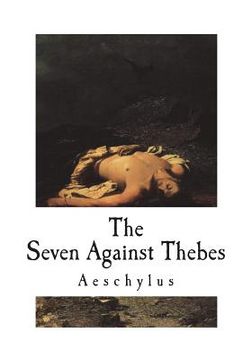Synopsis "The Seven Against Thebes (in English)"
The Seven Against Thebes by Aeschylus and translated into English Verse by E.D.A. Morshead. From the plays of Aeschylus. The surviving dramas of Aeschylus are seven in number, though he is believed to have written nearly a hundred during his life of sixty-nine years, from 525 B.C. to 456 B.C. That he fought at Marathon in 490, and at Salamis in 480 B.C. is a strongly accredited tradition, rendered almost certain by the vivid references to both battles in his play of The Persians, which was produced in 472. Five years after The Persians, in 467 B. C., the play which we call the Seven against Thebes was presented at Athens. It bears now a title which Aeschylus can hardly have given to it for, though the scene of the drama overlooks the region where the city of Thebes afterwards came into being, yet, in the play itself, Thebes is never mentioned. The scene of action is the Cadmea, or Citadel of Cadmus, and we know that, in Aeschylus' lifetime, that citadel was no longer a mere fastness, but had so grown outwards and enlarged itself that a new name, Thebes, was applied to the collective city. (All this has been made abundantly clear by Dr. Verrall in his Introduction to the Seven against Thebes, to which every reader of the play itself will naturally and most profitably refer.) In the time of Aeschylus, Thebes was, of course, a notable city, his great contemporary Pindar was a citizen of it. But the Thebes of Aeschylus' date is one thing, the fortress represented in Aeschylus' play is quite another, and is never, by him, called Thebes. That the play received, and retains, the name, The Seven against Thebes, is believed to be due to two lines of Aristophanes in his Frogs (406 B.C.), where he describes Aeschylus' play as "the Seven against Thebes, a drama instinct with War, which any one who beheld must have yearned to be a warrior."

